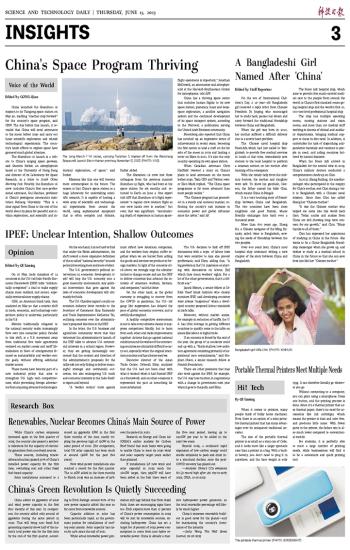
On 27 May, trade ministers of 14 countries in the U.S.-led Indo-Pacific Economic Framework (IPEF) talks "substantially completed" a deal to make supply chains more resilient and secure, especially semiconductor supply chains.
CSIS, an American think tank, then analyzed on May 30 that a seismic shift in trade, economic, and technology competition policy is underway, particularly in the U.S.
Matters traditionally relegated to the national security realm increasingly flow over into economic policy. Parallel to this shift, is a U.S. movement away from traditional free trade agreements centered on market access and tariff liberalization in favor of arrangements focused on sustainability and worker-centric goals, without offering additional market access.
These moves have become part of a new industrial policy that aims to strengthen U.S. high-tech competitiveness, while preventing foreign adversaries from acquiring advanced technologies.
On the one hand, it is not hard to find that under the Biden administration, the shift toward a more expansive definition of the so called "national security" in trade policy is becoming more and more evident.
The U.S. government's political intervention in economic development itself will trap the U.S. economy into a great insecurity environment. Any political intervention that goes against the laws of economic development will ultimately be futile.
The U.S. Chamber signed a multi-association industry letter recently to the Secretary of Commerce Gina Raimondo and Trade Representative Katherine Tai, outlining concerns over the administration's proposed direction in the IPEF.
In the letter, the U.S. business and agriculture community wrote that they welcomed the administration's launch of the IPEF talks to advance U.S. commercial interests in a critical region. However, they are getting increasingly concerned that the content and direction of the administration's proposals for the talks risk not only failing to deliver meaningful strategic and commercial outcomes, but also endangering U.S. trade and economic interests in the Indo-Pacific region and beyond.
"A 'worker centric' trade agenda must reflect how American companies, and the workers they employ, suffer together when we are barred from selling the goods and services we produce in foreign markets. In light of the concerns cited above, we strongly urge the administration to change course and use the IPEF to deliver outcomes that advance the interests of American workers, farmers, and companies," said the letter.
On the other hand, as the global economy is struggling to recover from the COVID-19 pandemic, the U.S.-led gang-like suppression has delayed the pace of global economic recovery, and is awfully shortsighted.
A healthy competitive environment is not to take every extreme means to suppress competitors blindly, but to learn from each other and make improvements together. Actions that go against national conditions and the wishes of the contracting countries are ultimately difficult to carry out, especially when the original intention is unclear and has ulterior motives.
Executive director of the Asian Trade Centre, Deborah Elms, analyzed that the U.S. had not been clear with what it wanted when it had framed IPEF as a framework, and on other occasions it represented the pact as something far more substantial.
The U.S. decision to kick off IPEF discussions with a topic of labour laws that were sensitive to Asia also proved problematic, said Elms, adding that, "A big problem is the U.S. insistence on starting with discussions on labour, [by] which they mean workers' rights. For a lot of the other governments, that's a difficult one."
Jayant Menon, a senior fellow at ISEAS-Yusof Ishak Institute who closely monitors IPEF, said developing countries were always "suspicious" when a developed country proposed labour standards in trade talks.
Moreover, without market access, for example in reduction of tariffs, the U.S. has little leverage in getting different countries to quickly come to the table on issues like labour or digital trade.
If an outcome is forced by the end of the year, the group of 14 countries could end up with a, "Fairly shallow, low-ambition agreement consisting primarily of aspirational non-commitments," said Stephen Olson, a senior research fellow at Hinrich Foundation.
There are other pressures that may also work against the IPEF, for example, the U.S. may lose traction in negotiations with a change in government next year when it goes to the polls, said Elms.


 Next
Next




